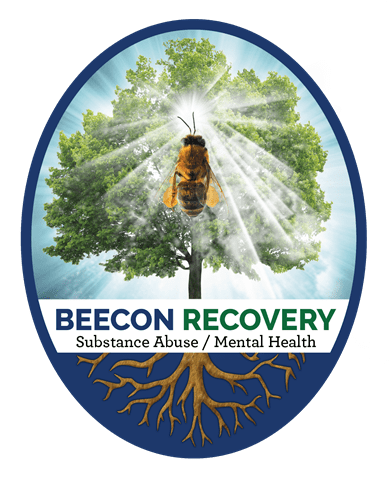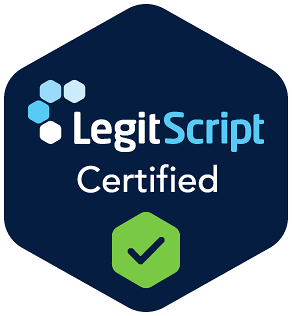The Power of Combined Therapies at Beecon Recovery
At Beecon Recovery, we recognize the value of combining traditional and holistic therapies to achieve comprehensive recovery from substance use disorders and mental health challenges. This integrative approach caters to the diverse needs of each individual, allowing for a more effective and tailored treatment experience.
Integrating Traditional and Holistic Approaches
We believe that the best outcomes arise from blending conventional methods with alternative therapies. Traditional therapies, such as Cognitive Behavioral Therapy (CBT) and Dialectical Behavior Therapy (DBT), provide essential frameworks for addressing mental health issues and understanding cognitive patterns. However, incorporating holistic techniques—like yoga, art therapy, and nutrition programs—enhances emotional, spiritual, and physical well-being.
The synergy created by integrating these approaches leads to a more rounded recovery experience. In our programs, we apply these combined therapies to treat not just the symptoms of addiction, but also the underlying issues that contribute to addiction and mental health struggles.
| Therapy Type | Benefits |
|---|---|
| Traditional Therapies | Address cognitive and emotional patterns, provide psychological support |
| Holistic Therapies | Promote overall wellbeing, support mind-body connection |
For instance, while CBT helps individuals recognize and change negative thought patterns, incorporating yoga and meditation promotes mindfulness and relaxation. This integration equips individuals with tools to manage stress and triggers, which are vital in the recovery journey.
Importance of Comprehensive Treatment Programs
Our comprehensive treatment programs are designed to consider all aspects of an individual’s life. We understand that no single approach works for everyone. By offering a mix of therapies, we empower individuals to find their unique path to recovery.
Incorporating therapies such as neurofeedback therapy and ketamine-assisted therapy into our programs demonstrates our commitment to advancing recovery methods. These innovative therapies complement traditional techniques, allowing for deeper healing.
Additionally, we provide personalized treatment options informed by tools like epigenetic testing and live blood cell analysis. These assessments help us craft individualized plans tailored to our clients’ specific needs.
A treatment plan may consist of:
| Component | Description |
|---|---|
| Individual Counseling | One-on-one sessions focusing on personal challenges |
| Group Counseling | Supportive peer interactions to foster community |
| Holistic Practices | Yoga, nutrition, and art therapy for whole-person healing |
By prioritizing a combined approach, we address not only the addiction itself but also co-occurring mental health disorders, ensuring that our clients can achieve lasting recovery.
Traditional Therapies for Recovery
At Beecon Recovery, we recognize the importance of incorporating traditional therapies in our comprehensive recovery approach. These evidence-based practices provide a strong foundation for healing, helping individuals pave their paths toward sobriety and mental well-being.
Cognitive Behavioral Therapy (CBT)
Cognitive Behavioral Therapy (CBT) is one of the most effective approaches in addressing substance use disorders and mental health issues. This therapy focuses on the interplay between thoughts, feelings, and behaviors. By identifying and altering negative thought patterns, we can empower individuals to make positive changes in their lives.
CBT is structured and goal-oriented. It typically consists of a series of sessions where individuals work closely with a licensed therapist. During these sessions, participants learn valuable coping skills and strategies to manage triggers and cravings. According to research, CBT can reduce the risk of relapse by encouraging healthier thought patterns.
| Key Features of CBT |
|---|
| Duration: 12-16 sessions |
| Focus on problem-solving |
| Development of coping strategies |
Learn more about other therapeutic options we offer in our article on what is neurofeedback therapy and how does it aid addiction recovery?.
Dialectical Behavior Therapy (DBT)
Dialectical Behavior Therapy (DBT) is an extension of CBT that emphasizes emotional regulation and interpersonal effectiveness. This therapy is particularly beneficial for those who struggle with intense emotions or co-occurring disorders. At Beecon Recovery, we utilize DBT to teach clients skills that help them navigate their emotional experiences more effectively.
DBT consists of both individual therapy sessions and skills training groups. This dual approach allows individuals to apply what they learn in real-life scenarios. Core components of DBT include mindfulness, distress tolerance, emotional regulation, and interpersonal effectiveness, all of which assist in fostering a well-rounded recovery journey.
| Key Components of DBT |
|---|
| Mindfulness skills |
| Emotion regulation training |
| Interpersonal effectiveness training |
Explore how DBT can complement your recovery efforts in our piece on the science behind ketamine-assisted therapy for mental health.
Individual and Group Counseling
Individual and group counseling are essential components of our treatment programs. One-on-one sessions provide a safe space for clients to explore their thoughts and feelings with a trained counselor. Here, individuals can address personal challenges, set goals, and receive tailored support throughout their recovery journey.
Group counseling fosters a sense of community and connection among peers. Participants share their experiences, offer mutual support, and learn from one another. This collaborative approach can reduce feelings of isolation, which is often a struggle for those in recovery.
| Benefits of Counseling |
|---|
| Personalized support in individual sessions |
| Peer support and shared experiences in group sessions |
| Enhanced motivation and accountability |
For additional insights on personalized approaches, see our article on understanding epigenetic testing in personalized addiction treatment.
By integrating these traditional therapies into our programs, we lay the groundwork for a robust recovery process that marries the best evidence-based practices with holistic interventions. Our mission is to support every individual with compassion and care as they reclaim their lives.
Holistic Therapies for Well-Rounded Healing
At Beecon Recovery, we firmly believe in the significance of holistic therapies as part of our comprehensive treatment programs. By integrating these approaches with traditional methods, we aim to promote overall wellbeing and facilitate lasting recovery. Below, we outline some of the holistic therapies we utilize to support individuals on their recovery journeys.
Yoga and Meditation
Yoga and meditation are essential components of our holistic approach. These practices focus on enhancing mindfulness, reducing stress, and promoting physical health. They not only aid in emotional regulation but also help in developing a mind-body connection crucial for recovery.
| Benefit of Yoga and Meditation | Description |
|---|---|
| Stress Reduction | Techniques help individuals manage anxiety and stress. |
| Emotional Balance | Encourages emotional awareness and reactivity. |
| Physical Health | Improves flexibility, strength, and overall physical wellbeing. |
For more insights on how these practices can aid recovery, we recommend exploring our article on the mind-body connection: the impact of holistic practices on relapse prevention.
Art and Music Therapy
Art and music therapy provide creative outlets that can be particularly beneficial for those grappling with addiction and mental health challenges. These therapies encourage self-expression, allowing individuals to explore and communicate their emotions in unique ways. The therapeutic process can foster healing, improve self-esteem, and enhance social connections.
| Art and Music Therapy Benefits | Description |
|---|---|
| Enhanced Expression | Offers a non-verbal way to express feelings. |
| Community Connection | Facilitates group interactions, reducing feelings of isolation. |
| Emotional Healing | Helps process trauma and build resilience. |
For more about how these therapies are integrated into our programs, you can read about integrating guided imagery into substance abuse treatment plans.
Nutrition and Wellness Programs
Nutrition plays a pivotal role in recovery. Our nutrition and wellness programs are designed to support individuals in making healthier food choices that aid both physical and mental health. Proper nutrition is vital for cognitive function and emotional stability, which are especially important during recovery.
| Key Components of Nutrition Programs | Description |
|---|---|
| Nutritional Counseling | Personalized meal plans tailored to individual needs. |
| Food Education | Teaching the role of nutrition in mental health and sobriety. |
| Cooking Classes | Hands-on experience in preparing healthy meals. |
To understand the importance of nutrition in recovery, explore our article on the role of nutrition in supporting mental health and sobriety.
By incorporating these holistic therapies into our treatment plans, we support a well-rounded approach to recovery that addresses physical, emotional, and spiritual healing. Our goal is to ensure that those we serve receive the highest quality of care tailored to their individual needs.
Personalized Treatment Plans
At Beecon Recovery, we recognize that each person’s journey to recovery is unique. Our approach to crafting personalized treatment plans combines traditional and holistic therapies for comprehensive recovery.
Tailoring Therapies to Individual Needs
We believe that one size does not fit all when it comes to recovery. Our dedicated team assesses each individual’s specific needs, preferences, and circumstances to create an effective treatment plan. This includes a thorough evaluation of their mental health history, substance use patterns, and any co-occurring disorders.
The following table highlights the key components we consider when tailoring treatment plans:
| Component | Description |
|---|---|
| Assessment | Detailed evaluation of personal history and current state |
| Therapy Types | Combination of traditional and holistic approaches |
| Progress Tracking | Regular monitoring of recovery milestones |
| Feedback Integration | Adjustments made based on individual feedback |
Integrating various methods such as neurofeedback therapy and nutrition support, we ensure a holistic focus that enhances recovery outcomes.
Approaches for Dual Diagnosis
Individuals facing both substance use disorders and mental health issues benefit from our specialized approaches for dual diagnosis. We recognize the intricate relationship between addiction and mental health, and our comprehensive plans address both areas simultaneously.
Here are some treatment strategies we employ for those with dual diagnoses:
| Strategy | Purpose |
|---|---|
| Integrated Therapy | Develop synchronized treatment for mental health and addiction |
| Personalized Counseling | Provide focused support for specific conditions |
| Group Sessions | Facilitate community discussions to share experiences |
| Educational Workshops | Enhance understanding of conditions and coping mechanisms |
Through the integration of therapies like ketamine-assisted therapy and amino acid therapy, we create a supportive environment that empowers individuals in their recovery journey.
Our commitment at Beecon Recovery is to effectively combine traditional and holistic therapies, ensuring that each person receives the best opportunities for healing and lasting recovery.
The Beecon Recovery Approach
At Beecon Recovery, we believe in a comprehensive strategy that combines traditional and holistic therapies. Our approach is underpinned by two essential components: a multidisciplinary team of experts and evidence-based practices that ensure effective treatment for substance use disorders and mental health challenges.
Multidisciplinary Team of Experts
Our team comprises professionals from various backgrounds, including licensed therapists, medical practitioners, nutritionists, and holistic health specialists. This collaboration allows us to deliver customized treatment plans that address the unique needs of each individual.
| Role | Expertise |
|---|---|
| Licensed Therapists | Provide evidence-based therapeutic interventions like Cognitive Behavioral Therapy (CBT) and Dialectical Behavior Therapy (DBT) |
| Medical Professionals | Oversee medication management and coordinate care for co-occurring health conditions |
| Nutritionists | Design nutrition plans that support healing and overall well-being |
| Holistic Health Specialists | Integrate therapies such as yoga, meditation, and nutritional counseling to promote mind-body wellness |
Evidence-Based Practices
We prioritize therapies that have been scientifically validated, ensuring our clients receive the highest standards of care. Our programs utilize evidence-based techniques that have been shown to enhance recovery outcomes.
Among the practices we emphasize include:
- Cognitive Behavioral Therapy (CBT): A well-researched approach that helps patients change negative thought patterns.
- Dialectical Behavior Therapy (DBT): Focuses on emotional regulation and interpersonal effectiveness.
- Neurofeedback Therapy: A technique that aids in addiction recovery by training brain activity. Learn more about this therapy in our article on what is neurofeedback therapy and how does it aid addiction recovery?.
- Ketamine-Assisted Therapy: An innovative method addressing mental health conditions. We explore the science behind it in our article on the science behind ketamine-assisted therapy for mental health.
Our commitment to combining traditional therapies with holistic options is illustrated through the use of additional effective treatments, such as:
- Amino Acid Therapy: Designed to help restore brain chemistry after addiction. More information can be found in our article on amino acid therapy: rebuilding brain chemistry after addiction.
- Guided Imagery: Integrating this practice into substance abuse treatment plans enhances emotional well-being. Read about it in our article on integrating guided imagery into substance abuse treatment plans.
- Live Blood Cell Analysis: This technique provides insight into health during recovery. For details, see our article on live blood cell analysis: a window into your health during recovery.
At Beecon Recovery, we strive to offer a flexible, personalized, and holistic treatment approach. By fostering a supportive environment, we help clients build a solid foundation for long-term healing and recovery.
Building a Foundation for Lasting Recovery
At Beecon Recovery, we understand that achieving lasting recovery involves a holistic approach that addresses not only substance use disorders but also mental health challenges. By embracing a whole-person approach, we tailor our treatment programs to meet the diverse needs of our clients, ensuring a comprehensive healing process.
Embracing a Whole-Person Approach
A whole-person approach encompasses the physical, emotional, and psychological aspects of recovery. This means that we consider every individual as a complete being with unique experiences and challenges. Our programs integrate traditional and holistic therapies, such as cognitive behavioral therapy and nutritional support, to create a balanced treatment plan.
| Aspect of Treatment | Focus Areas |
|---|---|
| Physical Health | Nutrition, exercise, and wellness programs |
| Emotional Well-being | Therapy sessions, art and music therapy |
| Psychological Support | Individual and group counseling, mindfulness practices |
We prioritize evidence-based strategies while incorporating alternative therapies. This integrated framework helps to enhance resilience and supports sustained recovery.
Support and Aftercare Programs
Support does not end once treatment concludes. At Beecon Recovery, we recognize the significance of aftercare programs in maintaining progress and preventing relapse. We provide our clients with the necessary tools to navigate challenges in their daily lives post-treatment.
Our aftercare offerings may include:
- Regular check-ins and follow-ups
- Participation in support groups
- Access to continued mental health resources
- Workshops focusing on life skills and coping strategies
Investing in these aftercare programs ensures that individuals transition smoothly into their everyday lives, equipped with the skills needed to thrive. For more insights on specific therapies, explore our articles on what is neurofeedback therapy and how does it aid addiction recovery? and the role of nutrition in supporting mental health and sobriety.






